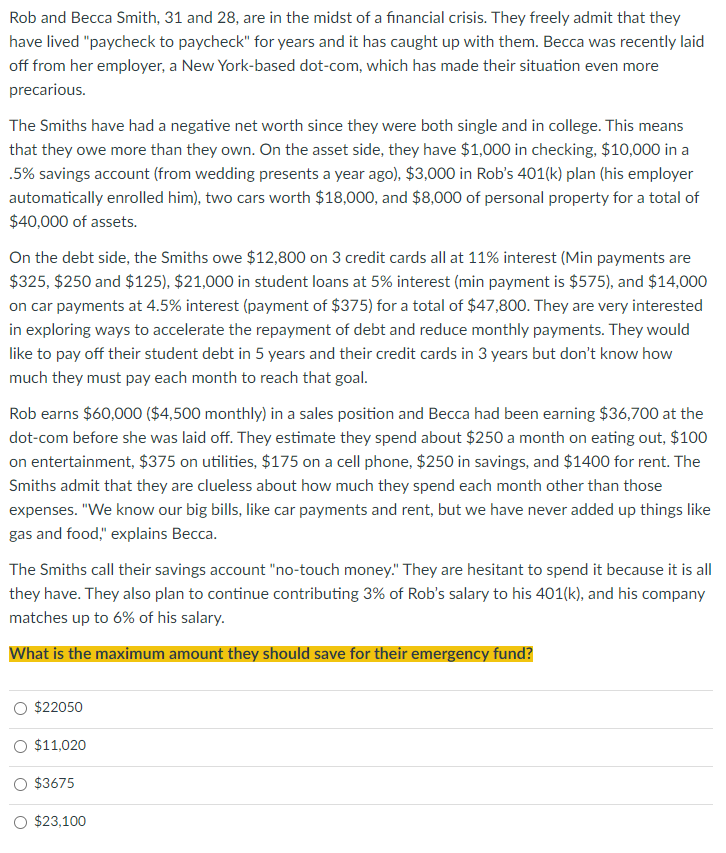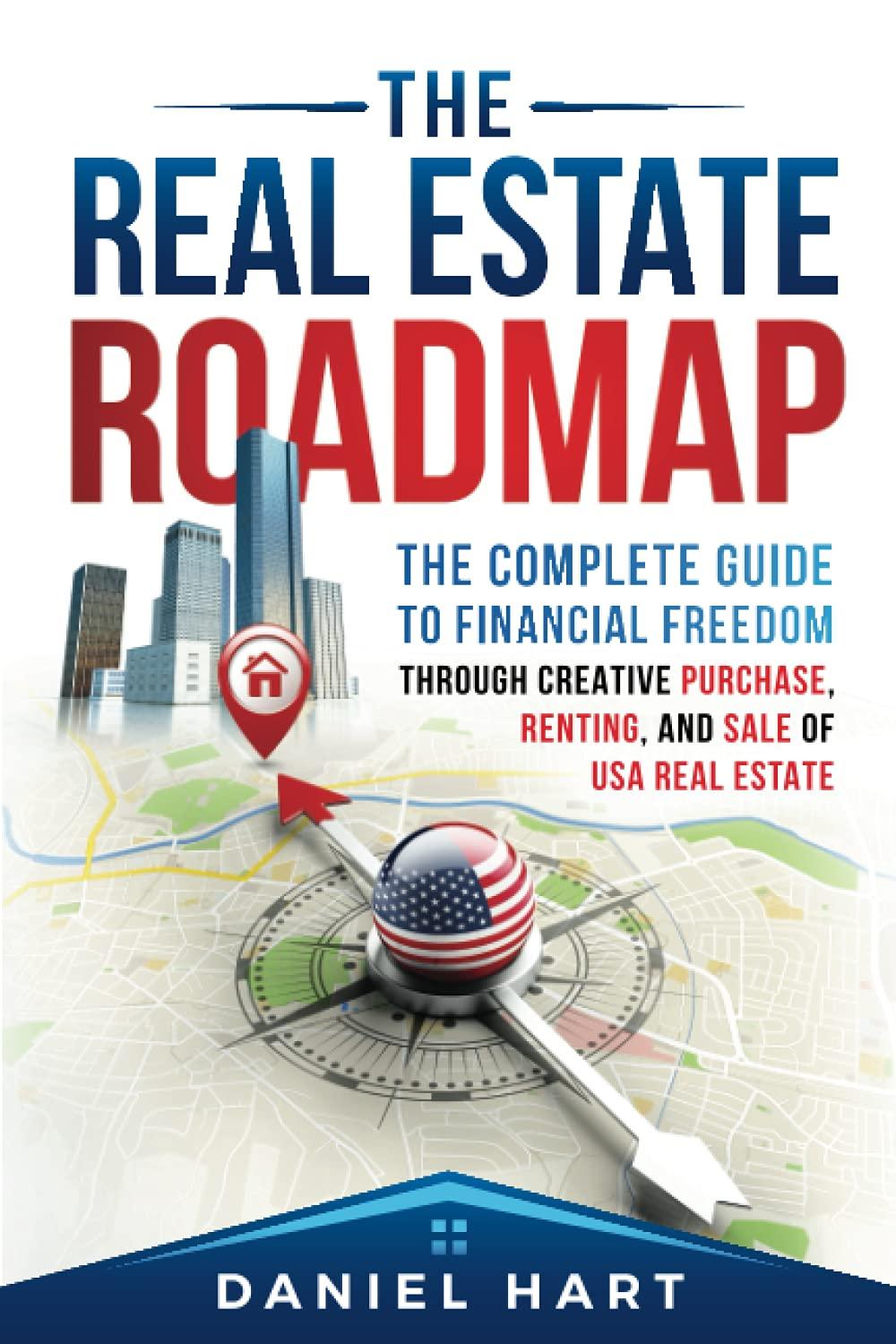
Rob and Becca Smith, 31 and 28, are in the midst of a financial crisis. They freely admit that they have lived "paycheck to paycheck" for years and it has caught up with them. Becca was recently laid off from her employer, a New York-based dot-com, which has made their situation even more precarious. The Smiths have had a negative net worth since they were both single and in college. This means that they owe more than they own. On the asset side, they have $1,000 in checking, $10,000 in a .5% savings account (from wedding presents a year ago), $3,000 in Rob's 401(k) plan (his employer automatically enrolled him), two cars worth $18,000, and $8,000 of personal property for a total of $40,000 of assets. On the debt side, the Smiths owe $12,800 on 3 credit cards all at 11% interest (Min payments are $325, $250 and $125), $21,000 in student loans at 5% interest (min payment is $575), and $14,000 on car payments at 4.5% interest (payment of $375) for a total of $47,800. They are very interested in exploring ways to accelerate the repayment of debt and reduce monthly payments. They would like to pay off their student debt in 5 years and their credit cards in 3 years but don't know how much they must pay each month to reach that goal. Rob earns $60,000 ($4,500 monthly) in a sales position and Becca had been earning $36,700 at the dot-com before she was laid off. They estimate they spend about $250 a month on eating out, $100 on entertainment, $375 on utilities, $175 on a cell phone, $250 in savings, and $1400 for rent. The Smiths admit that they are clueless about how much they spend each month other than those expenses. "We know our big bills, like car payments and rent, but we have never added up things like gas and food," explains Becca. The Smiths call their savings account "no-touch money." They are hesitant to spend it because it is all they have. They also plan to continue contributing 3% of Rob's salary to his 401(k), and his company matches up to 6% of his salary. What is the maximum amount they should save for their emergency fund? $22050 $11,020 O $3675 $23,100 Rob and Becca Smith, 31 and 28, are in the midst of a financial crisis. They freely admit that they have lived "paycheck to paycheck" for years and it has caught up with them. Becca was recently laid off from her employer, a New York-based dot-com, which has made their situation even more precarious. The Smiths have had a negative net worth since they were both single and in college. This means that they owe more than they own. On the asset side, they have $1,000 in checking, $10,000 in a .5% savings account (from wedding presents a year ago), $3,000 in Rob's 401(k) plan (his employer automatically enrolled him), two cars worth $18,000, and $8,000 of personal property for a total of $40,000 of assets. On the debt side, the Smiths owe $12,800 on 3 credit cards all at 11% interest (Min payments are $325, $250 and $125), $21,000 in student loans at 5% interest (min payment is $575), and $14,000 on car payments at 4.5% interest (payment of $375) for a total of $47,800. They are very interested in exploring ways to accelerate the repayment of debt and reduce monthly payments. They would like to pay off their student debt in 5 years and their credit cards in 3 years but don't know how much they must pay each month to reach that goal. Rob earns $60,000 ($4,500 monthly) in a sales position and Becca had been earning $36,700 at the dot-com before she was laid off. They estimate they spend about $250 a month on eating out, $100 on entertainment, $375 on utilities, $175 on a cell phone, $250 in savings, and $1400 for rent. The Smiths admit that they are clueless about how much they spend each month other than those expenses. "We know our big bills, like car payments and rent, but we have never added up things like gas and food," explains Becca. The Smiths call their savings account "no-touch money." They are hesitant to spend it because it is all they have. They also plan to continue contributing 3% of Rob's salary to his 401(k), and his company matches up to 6% of his salary. What is the maximum amount they should save for their emergency fund? $22050 $11,020 O $3675 $23,100







